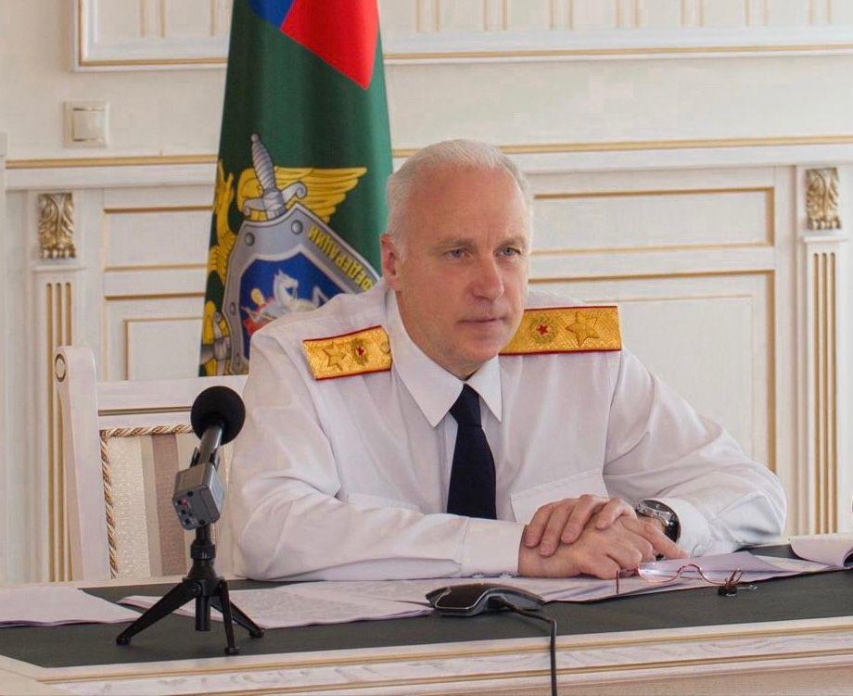
Address of the reception office of the Investigative Committee: Moscow, ul. Pervaya Frunzenskaya, d 3a
Address for writtent applications: 105005, Moscow, Tekhnichesky Pereulok, 2
Address of the reception office of the Investigative Committee: Moscow, ul. Pervaya Frunzenskaya, d 3a
Address for writtent applications: 105005, Moscow, Tekhnichesky Pereulok, 2

Chairman of the Investigative Committee of the Russian Federation, Alexander Ivanovich Bastrykin, held an operational meeting via video conference on the issues of fighting crime in the field of migration. The event was attended by the First Deputy and Deputy Chairmen of the Investigative Committee of Russia, heads of divisions of the central office, and regional investigative bodies.
During the meeting, it was noted that in the first four months of 2024, migrants have committed 14,070 crimes. The number of rapes has increased by 40%, and the number of serious offenses committed by foreign citizens has increased by 13%. The number of crimes committed by persons illegally residing in the Russian Federation more than tripled. Crimes committed by underage migrants have increased by 70% when compared to the same period last year. In this regard, the Chairman of the Investigative Committee of Russia emphasized: "The antisocial behavior of non-residents and their children has a serious destructive potential." He also noted that reports continue to be updated with more and more new incidents, which increase dissatisfaction with the migration situation.
In the first four months of this year, the number of criminal cases sent to court by the investigative bodies of the Investigative Committee of Russia against foreign citizens has increased by 25%. Along with the crimes committed by foreign citizens, the Investigative Committee of Russia is also investigating cases against officials who have committed crimes in the field of migration registration. As compared to last year, the number of criminal cases launched in this category has doubled, with 77 individuals, including 31 employees of migration divisions of internal affairs bodies, have been indicted.
During the meeting, the Chairman of the Investigative Committee of Russia has listened to reports from the heads of investigative departments in regions where the situation in the migration area is most tense.
A.S. Bezukladnikov, the Head of the Investigative Committee of Russia for the Kemerovo Region and Kuzbass, described the migration processes in the region and reported on the work of the investigative-analytical group in this area. The Chairman of the Investigative Committee of Russia criticized the effectiveness of that work and has ordered an audit of the activities of the investigative unit.
The report by the Acting Head of the Investigative Committee of Russia for the Chelyabinsk Region, K.V. Pravosudov, presented details on the progress of investigations of specific criminal cases in this category, as well as the details on the results of interdepartmental cooperation to identify crimes committed by responsible officials in the field of migration.
Head of the Main Investigative Directorate of the Investigative Committee of Russia for Moscow, A.A. Strizhov, Acting Head of the Main Investigative Directorate of the Investigative Committee of Russia for St. Petersburg, O.V. Bobkov, and Acting Head of the Main Investigative Directorate of the Investigative Committee of Russia for the Moscow Region, Ya.A. Yakovlev, also reported on the work in this area. The speakers presented most current information on the number of migrants and the nature of their activities, and provided updates on the investigation of the most high-profile crimes. In addition, they presented examples of successful interdepartmental cooperation in identifying and prosecuting members of criminal groups from among the employees of migration authorities.
After hearing the reports, the Chairman of the Investigative Committee of Russia emphasized the importance of strengthening control over migration flows and improving legal regulation in this area. In particular, he spoke about establishing employer responsibility for the stay and departure of migrants and optimizing the mechanism for setting quotas of foreign labor. He instructed to continue the practice of conducting special raids in places where migrants gather, including retail outlets, construction sites, ethnic cafes, sports clubs and hostels, in order to identify violations in the field of migration, and to continue taking measures to ensure that naturalized citizens fulfill their military obligations. In addition, A.I. Bastrykin reminded about the importance of monitoring the public media space.
Following the meeting, the head of the department gave a number of instructions and placed their execution under the control of the central office of the Investigative Committee of Russia.